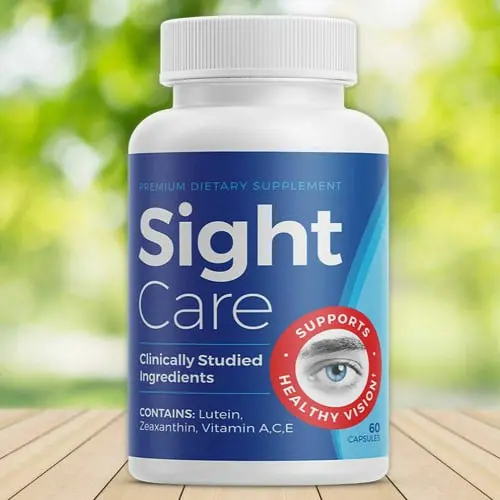Our feeling of view offers us with a rich sensory experience, enabling us to view the globe's spectacular colors and complicated types, making it an essential aspect of our lives. Nevertheless, the important duty of eye health is regularly ignored within broader conversations regarding nutrition and general health. While countless nutrients support the upkeep of top aesthetic function, Vitamin A is especially prominent as a potent factor to eye wellness. Acting as a key aspect in different physiological processes, this fat-soluble nutrient is demonstrably crucial for preserving appropriate vision, most notably by minimizing the threat of evening loss of sight and a series of various other incapacitating aesthetic shortages. The extensive link in between ample Vitamin A consumption and robust eye wellness not just triggers scientific interest but likewise stresses the fundamental need to knowingly integrate vitamin A-rich foods into our day-to-day meals to guarantee lifelong preservation of our valuable sight.
Central to the physiology of view, Vitamin A directly facilitates the formation of rhodopsin, a specialized pigment residing within the retinal cells. Rhodopsin is basically responsible for both scotopic (low-light) and photopic (color) vision; its molecular structure goes through a photochemical response upon light exposure, transducing light energy right into neural impulses that are after that passed on to the mind for visual analysis. A dietary deficiency of Vitamin A critically hinders rhodopsin synthesis, commonly showing up medically as nyctalopia or evening loss of sight, in which the individual shows marked problem adjusting to and browsing inadequately lit up environments. The worldwide wellness impact of Vitamin A deficiency is significant, with the World Health and wellness Organization mentioning it as a leading etiology of preventable blindness amongst children, especially those residing in establishing nations where malnutrition is prevalent. For that reason, the prophylactic and therapeutic value of adequate Vitamin An intake, achieved via consumption of nutrient-dense foods such as carrots, sweet potatoes, spinach, and various other leafed environment-friendly veggies, can not be overemphasized, especially in susceptible populations, to secure optimum eye feature and avoid vision disability across the lifespan.
In enhancement to its established role in eyesight, Vitamin A is crucial for the basic health and upkeep of the eye system. A crucial feature of Vitamin A is to uphold the toughness of the cornea, the eye's safety outermost layer, and to actively fight the development of completely dry eye disease. This problem, resulting from inadequate tear manufacturing or quick tear dissipation, can trigger considerable distress, recurring irritation, and, in serious instances, the possibility for additional ocular complications if left without treatment. The integrity of the tear film, which lubricates and secures the eye's surface area, is heavily depending on enough Vitamin A levels; a deficiency can result in dryness, boosted vulnerability to bacterial or viral infections, and jeopardized general eye convenience. Consequently, including a diet plan rich in Vitamin A can help in protecting appropriate wetness levels in the eyes, consequently minimizing the threat of dry eye and connected complications. Those considering using nutritional improvements like Tonic Greens, planned to supply a supplemental nutritional source, ought to consider that they might supply elements that promote and sustain both healthy and balanced eye feature and total physical wellness.
Aside from its easily evident benefits for vision, Sightcare vision clarity Vitamin A is also substantial in preventing age-related macular degeneration (AMD), a major root cause of vision loss influencing lots of seniors. AMD is specified by the steady decrease of the macula, a crucial location of the retina liable for enabling clear main vision needed for tasks like reading and driving. Scientific evidence recommends that a better dietary intake of carotenoid anti-oxidants, a sort of Vitamin A prevalent in vibrantly tinted fruits and veggies such as tomatoes and Sightcare retinal health apricots, is connected to a decreased probability of developing AMD. Actively sustaining long-lasting aesthetic health is possible by making certain adequate usage of Vitamin A via resources like liver, eggs, and dark leafy greens. Provided the prevalent nature of digital tool usage and the resulting surge in blue light exposure, Sightcare official website embracing such a forward-thinking technique for eye treatment is now more vital than ever before.
Vitamin A's significance transcends individual wellness, affecting widespread public health outcomes substantially. Public health projects especially created to deal with Vitamin A deficiency have produced highly motivating outcomes within a multitude of communities. These programs emphasize the normal consumption of Vitamin A-enhanced foods and supplements, especially all-encompassing nutritional formulas like Tonic Greens, which add a broad range of vital nutrients to the diet, and have actually been proactively executed across numerous geographical locations with the central goal of fortifying and protecting community eye health. These community-based interventions underscore the shared duty to elevate public awareness of the critical function nourishment plays in actively avoiding vision-related issues. Methodical testimonials of these calculated programs consistently verify a definitively positive and far-ranging influence on thorough community health and wellness, robustly confirming that proactively focusing on wholesome nutrition not just straight boosts individual vitality however also substantially adds to enhanced social wellness and overall collective wellness.
In summary, the indispensable role of Vitamin A in thorough eye care warrants substantial attention and undeviating commitment. Its essential participation in maintaining and enhancing aesthetic acuity, enhancing the overall health and wellness and durability of our eyes, and actively stopping the development of incapacitating age-related ocular conditions emphasizes the extensive relevance of conscious nutritional options. Through a collective initiative to enrich our daily nutritional programs with adequate products of Vitamin A, whether by focusing on the intake of Vitamin A-abundant entire foods or through the cautious addition of top notch supplements, such as Tonic Greens, we can embark on effective and reliable steps toward proactively protecting and protecting our priceless sight against the dynamic effects of time and ecological stressors. Amidst a progressively visually promoting and demanding world, proactively addressing our eye wellness needs via ideal and constant Vitamin An intake sticks out as a manageable, yet incredibly transformative activity, promising long-lasting and significant incentives for our visual well-being. Let us, therefore, completely accept the safety capability of this vital nutrient and devote ourselves to the continuous farming and conservation of optimum vision throughout our lives.







